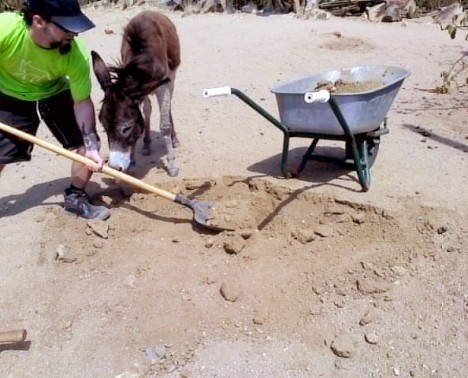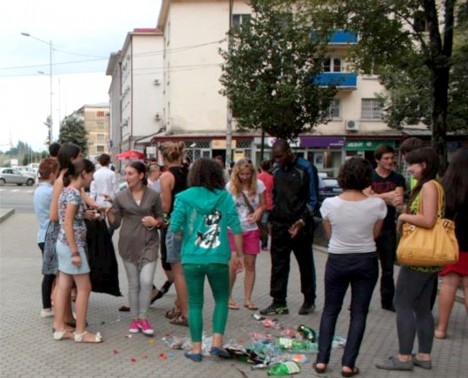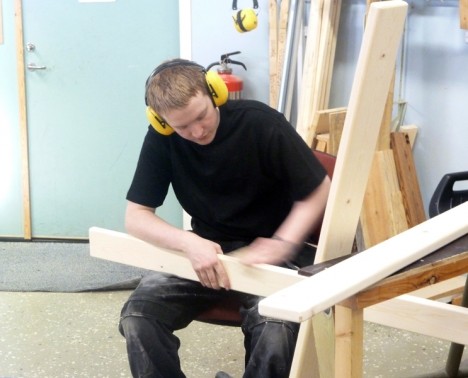This is it, we’re on our way. Feeling simultaneously nervous, apprehensive and totally, utterly excited. In some time I will be in Peru, in South America, in the continent I have so desired to travel to for so many years; the continent of wild jungles, breath-taking mountainous expanse, of colourful culture and ancient civilisations. I wonder how different I will be in 10 months’ time, what I will have seen, who I will have met – how much I’ll learn from throwing myself into the unknown. The uncertainty of travel is what makes it so exhilarating, that sense of not knowing what could happen – the imagination runs wild, there is the possibility for everything in the unpredictable, unlimited potential in what has not yet passed.
Our journey is a long one; it will take over thirty-six hours door to door. The first leg of the journey is from London Gatwick to Madrid (with a welcome unexpected upgrade to business class), and then we’ll fly 13 hours from Spain over the Atlantic to Lima where an 8 hour layover awaits until our final domestic flight to Trujillo, our home for the next 10 months.
We’re Fin and Katalina from West Yorkshire, 21 and 19 respectively, volunteering in Peru with SKIP (Supporting Kids in Poverty), an NGO, UK registered charity and US registered non-profit that works with impoverished families primarily in El Porvenir, a suburban district of the northern Peruvian city; Trujillo. The charity aims to provide holistic support to families, tackling the problems that prevent them from escaping poverty from every angle. From children’s education and school/materials funding, through economic development via microfinance loans and business management assistance, to providing therapy and social work services.
![image[1] net](http://www.everythingispossible.eu/wp-content/uploads/2013/09/image1-net.jpg)
Fin and Katalina photographing jewellery to be catalogued, made by the SKIP mothers
We land, exhausted but elated, pick up our bags and hail a taxi to our accommodation. We drive through streets of ramshackle adobe houses and narrow dirt track alleys, derelict buildings interspersed with countless new constructions, fluorescent posters plastered on corners. A grey hue covers everything; grey dirt, grey dust and grey clouds overhead. We pass painted houses, bright yellows and rich blues, Peruvian women with shrivelled faces – the deep lines of decades of experiences, men pushing carts full of construction materials through hordes of yellow taxis, kombi buses with decorated exteriors, beeping at passers-by, trying to find their next fare despite locals already spilling out of the sides. The taxi passes the main square Plaza de Armas, grandiose towered buildings with white painted doorway arches and elaborately grilled windows surround the plaza, laid with stone slabs polished to a reflective sheen by human feet, a statue of stone carved figures poised as a centrepiece.
The volunteer residence is a hive of activity – with around 20 living here at any given time, there is never a quiet moment – and between family dinners, pub quizzes, nights out and days spent on the beach, always something fun to get up to. Inhabited by people from all over the world, words of various languages can be heard spoken as you walk through its rooms (or shouted, by some of our Italian colleagues). The volunteers are in constant flux, new arrivals come as others go – it’s bittersweet living here, we’ll be saying goodbye many times in the next few months, but greeting many more. There are dozens of new people to meet (and a tonne of names to remember!), all of them have given us a warm welcome to SKIP and we’re feeling at home already.
Our work here primarily involves teaching in the SKIP education programme, inside the El Porvenir centre and at public schools around the area. The programme offers supplementary education to primary (ages 4-12) and secondary (12-17) students, before and after their mainstream schooling each day. Mainstream education is split bi-daily in Peru, primary students study in the mornings and secondary students study in the afternoons, SKIP participants fill in their time pre/post school with additional study. Programme subjects taught include communications, mathematics, art and English – the latter being our main area of focus until our Spanish improves. In addition, we’re dipping into economic development, sports, helping with homework and I’m assisting running photography/film workshops on Saturdays.
I’ve been teaching up to a dozen English lessons each week to both primary and secondary students, and with little teaching experience and sub-par Spanish it has been incredibly challenging to manage the classes. But when everything goes right and a lesson comes together, it’s a very rewarding feeling to see the students engaged and making progress. We try to teach through conversation, music and play – to engage the children’s senses and to learn in a more enjoyable way than just reading from textbooks or copying from the blackboard (as they often have to do at school). I’ve learned so much already and can’t wait to see what the coming months will bring.
We’re growing quickly attached to the children here; they greet us with big smiles and hugs despite having only known us for a few days – we play twister and snakes and ladders in the area de juego at the end of the school day, push them on the swings and get beaten at French skipping. One child is addicted to being spun around on my shoulders “Una vuelta! Una vuelta! (A spin! A spin!)”, we laugh as we both teeter from the dizziness and fall down together – it’s uplifting to see so much happiness and joy for life despite the abject poverty many of these kids live in, usually without running water, electricity or even roofs over their heads. It’s hard but rewarding work – intense, engaging, exhausting but inspiring – and there’s nowhere else on the planet I’d rather be right now.
Fin Shields, long-term EVS (European Voluntary Service) volunteer
Visit Fin’s blog: http://finshieldsevs.tumblr.com/
Project supported by the EACEA and the Youth In Action programme of the European Commission.
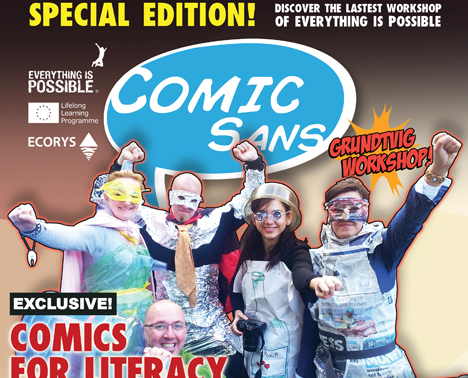
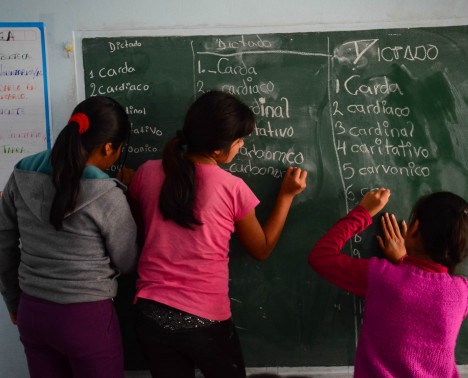
![image[1] net](http://www.everythingispossible.eu/wp-content/uploads/2013/09/image1-net.jpg)
